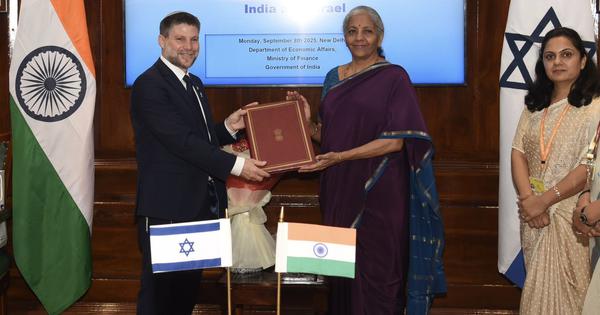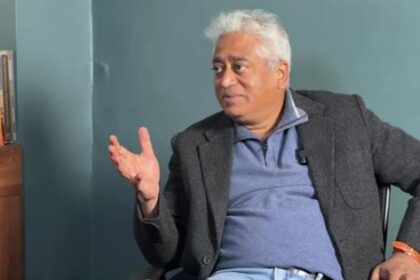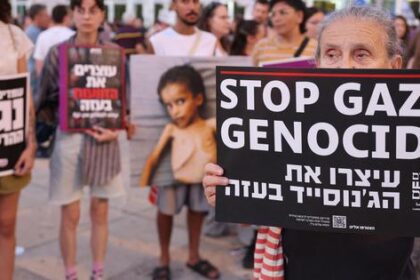Examining India’s foreign policy amidst accusations of complicity in Gaza’s humanitarian crisis
Under the framework of a UN convention, countries are mandated to utilize all available measures to prevent and punish acts of genocide. Recently, this obligation has come under scrutiny in light of India’s diplomatic engagements with Israel, particularly following a controversial visit by Israeli Finance Minister Bezalel Smotrich to New Delhi.
Smotrich’s visit occurred shortly after the International Association of Genocide Scholars accused Israel of committing genocide in the Gaza Strip. His ultranationalist views have prompted sanctions from several countries, including Australia and Canada, for inciting violence against Palestinians. In India, his presence sparked outrage among progressive parties and organizations. The Communist Party of India (Marxist) condemned the Indian government for signing agreements with Israel while violence in Gaza escalates.
Asaduddin Owaisi, a member of Parliament and president of the All India Majlis-e-Ittehadul Muslimeen, expressed strong disapproval of the bilateral agreements made during a period when Israel is accused of overseeing genocide, ethnic cleansing, and famine in Gaza. While the Bharatiya Janata Party (BJP) government has not rescinded its recognition of Palestine or its support for a two-state solution, its response to the humanitarian crisis in Gaza has been criticized for lacking condemnation of the attacks against civilians.
The signing of the trade agreement with Smotrich came amidst ongoing violence in Gaza, yet the official statement from India highlighted shared civilizational values, omitting any mention of the humanitarian crisis. Just days after Smotrich’s visit, the UN Independent Commission of Inquiry released findings that confirmed the existence of genocide in Gaza, aligning with definitions established by the 1948 Genocide Convention.
The Genocide Convention arose from the atrocities of the Holocaust and defines genocide as actions intended to destroy a national, ethnic, racial, or religious group, either wholly or partially. It obligates nations to prevent such acts. The UN Inquiry Commission concluded that Israeli authorities are committing genocide on multiple fronts, including killing and inflicting serious harm on Palestinians, as well as imposing conditions aimed at their physical destruction.
The commission’s findings indicated that Israeli officials, including President Isaac Herzog and Prime Minister Benjamin Netanyahu, have incited acts of genocide, with Smotrich also named among those potentially liable. Following the commission’s report, Smotrich made a statement suggesting that the Gaza Strip could be viewed as a ‘real estate bonanza,’ which many interpret as incitement against the Palestinian population.
The UN Commission of Inquiry has stressed that all countries have a pressing obligation to prevent and punish genocide. Failure to act may render nations complicit in such crimes. By extending an invitation to Smotrich, the Indian government’s actions raise serious questions about its stance on human rights and its role in the ongoing crisis in Gaza. Some view this as a significant low point in Indian foreign policy, suggesting a tacit approval of actions perceived as genocidal.
DJ Ravindran, a member of the UN Working Group on the use of mercenaries, highlights these concerns, although the views expressed are personal. This situation calls for a critical examination of India’s diplomatic strategies and their implications on its moral and legal responsibilities on the global stage.








